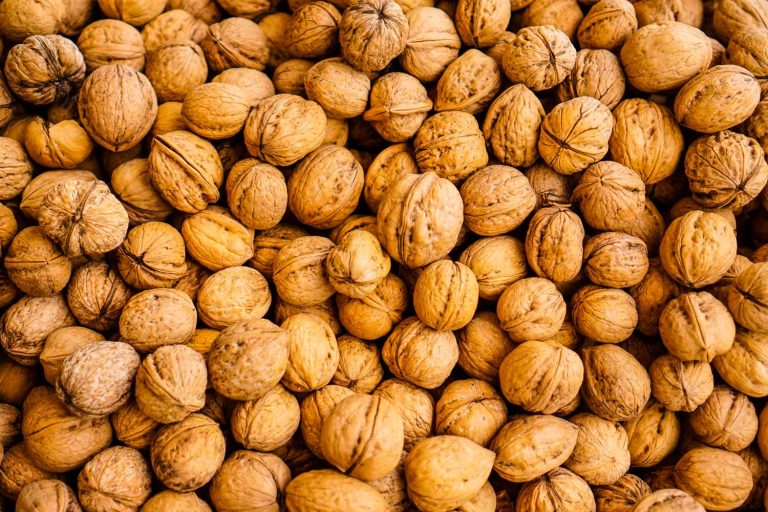Nuts are a ingredient in many treats and come in a variety of butter forms. While dogs are known to enjoy a spoonful of peanut butter, not all nut options are safe for canines to snack on. Today we’re going to explore how walnuts fare for our furry friends. Can dogs eat walnuts? Read on to find out.
Can Dogs Eat Walnuts?
Nut nutrition is a major concern for dog owners, as not all nuts are safe for canines. So can dogs eat walnuts? The verdict is mixed on walnut safety, with some experts ruling walnuts are not a cause of alarm and others saying steer clear. When it comes down to it, walnuts are not a safe choice for dogs.
When it comes to walnuts, pet website Chewy says you don’t have to worry if your dog sneaks a bit of walnut off your dish. However, it’s always a no when it comes to black walnuts. Black walnuts are toxic to both dogs and horses.
How Can Walnuts Harm Dogs?
The last thing we ever want to do is harm our pets. To err on the safe side, you shouldn’t serve walnuts to your furry friend. For starters, walnuts are too high in fat content to make for a safe doggie snack or treat.
One cup of chopped walnuts has a whopping 76 grams of fat in it, according to the USDA. This boils down to about 2.6 grams of fat per shelled nut. Though some fats can be beneficial, dogs should not be eating high fat diets.
Eating lots of fat increases the risk of dogs developing pancreatitis or becoming obese. High fat content can also lead to upset stomachs in dogs. Therefore, a majority of nuts out there are too fatty to be considered beneficial to dogs even if they aren’t toxic for them.
These large nuts are also difficult to digest. This runs a risk of your dog having possible internal obstructions due to the large size of walnuts. After all, dogs aren’t known to be thorough chewers.
Watch Out for Wild Walnuts
Walnuts clearly aren’t shaping out to be a food for dogs, but there are additional risks to consider if your dog lives around a wild walnut tree. If my family dog taught me anything growing up (besides true love), it’s dogs really will try to eat anything.
It can be very dangerous for dogs to consume walnuts off the ground, because they can be old. Moldy walnuts could contain mycotoxins. Such toxic fungus could lead to dogs developing seizures, tremors, or neurological issues.
Symptoms of walnut mold ingestion include vomiting, diarrhea, fever, restlessness, seizures, or tremors. Contact your vet immediately if you suspect your dog has eaten a moldy walnut. However, occasionally sampling a small amount of fresh walnuts should not harm your dog.
Here’s a dog safety bonus: always steer clear of macadamia nuts as well. These nuts are toxic for dogs. Macadamia nuts can cause an array of scary symptoms for dogs, including hypothermia, tremors, lethargy, and body weakness.
Walnut Conclusions
Can dogs eat walnuts? Select nuts can be safe for dogs, but walnuts are not one of them. It’s best to play it safe and keep these bad boys away from your good boy. However, if your dog does consume a bit of walnut, he will likely be just fine.
To check out a safe way to serve nut products to dogs, read about peanut butter for dogs.















